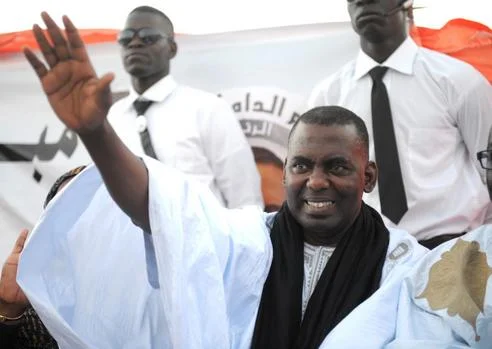The West African nation of Mauritania has never been widely viewed as a paragon of democracy in the region, but recent developments in the country have raised international concern. Next month on September 1, the country is slated to hold parliamentary, regional and local elections. In this context, the recent of arrests of journalists, human rights activists and opposition leaders brings to light an evident crackdown on legitimate forms of dissent in the country.
Of particular concern is the arrest and unjust treatment of Biram Dah Abeid -- a Vanguard Africa partner -- who has been detained for eight days as of this writing, crammed into a filthy prison cell with 7-8 other inmates, according to his legal team on the ground. The arrest took place on the same day as nominations were submitted for the country’s upcoming parliamentary election, in which Abeid is a strong candidate. No warrant was produced at the time of his arrest and bail will not be granted until a local magistrate passes "judgement," a process that could potentially take months. According to Amnesty International, the proceedings brought against Abeid and others were "marred with irregularities, including being detained without charge over 48 hours and not being able to access their lawyers."
This is not the first time that Abeid has been targeted by Mauritanian authorities, largely as a result of his outspoken criticism of the regime and his anti-slavery activism. In May 2016, for instance, Abeid and a colleague Bilal Ramdhane, were released from prison after serving 20 months of a two-year sentence. Around the same time, thirteen other antislavery activists were arrested after a protest and sentenced to prison terms of up to 15 years. Although Mauritania made slavery illegal in 1981 – the last country in the world to do so – tens of thousands of people still live as bonded laborers, domestic servants or child brides. Local rights groups estimate that up to 20% of the population is enslaved today.
The President of Mauritania, Mohamed Ould Abdel Aziz -- a former military general -- came to power through a coup in 2008 before being elected in 2009 and re-elected in 2014. In a region that has experienced tremendous democratic and economic growth over the past decade, Mauritania continues to stand out for all the wrong reasons. The example of Biram Dah Abeid, and the scores of others arrested and detained in recent weeks, clearly indicates a wider and more worrying pattern of anti-democratic behavior in the country.

